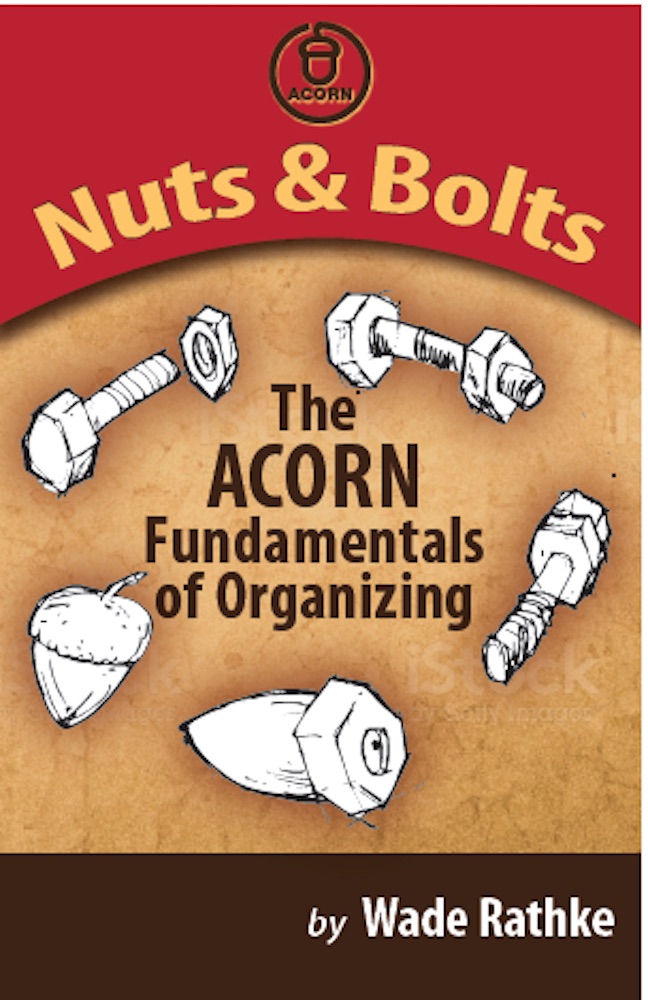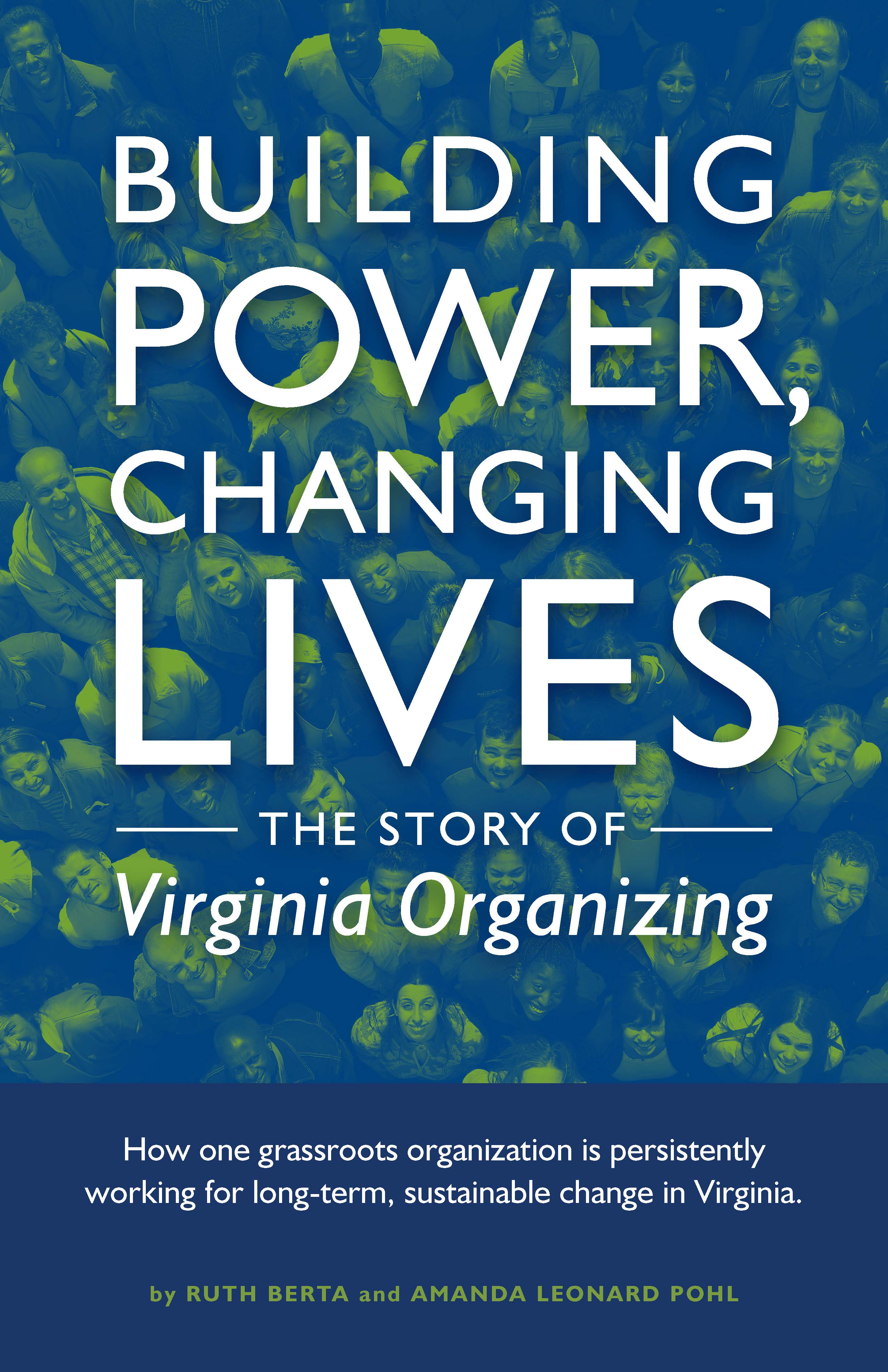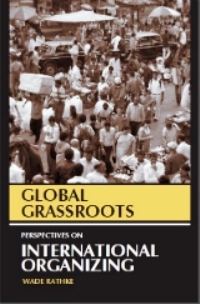BOOKS REVIEW: The Next Economy Is Up to Us
Written by James Mumm
Books reviewed:
Foster, Natalie. The Guarantee: Inside the Fight for America’s Next Economy. New Press, 2024.
Cohen, Donald, and Allen Mikaelian. The Privatization of Everything: How the Plunder of Public Goods Transformed America and How We Can Fight Back. New Press, 2023.
Imagine if everyone in this country had high quality housing, health care, higher education, transit, income, jobs, and more. And we have these things because they are considered public goods: things we all deserve, and for which we all work together.
It would be transformational. An end to poverty. A deep investment in young people and their boundless potential. Long overdue reparations for African-Americans. Sovereignty for Indigenous Peoples. The stuff of dreams on the edges of what might be possible in our lifetimes.
All of this is possible: indeed, in the richest country in the history of the world, one wonders why we didn’t achieve these things long ago.
Well, we don’t have to wonder. The reason is because a powerful alliance of corporate and conservative political forces has moved mountains to constrain social movements and overturn our victories. They have been wildly successful in shrinking taxes, taking away voting rights and cutting social policies to the bone.
And now, with the specter of a second Trump term on the horizon, corporate and conservative forces are fueling an authoritarian and overtly racist movement so they can fully capture the federal government to end progress toward inclusion and lock in their own economic interests.
We can, and must, stop them. None of what the far right wants is inevitable, although they want it to feel that way. Indeed, few Americans support the vision of government by and for the wealthy few. Yet if we are to succeed, we must craft a positive vision for American society that an inclusive and multiracial majority of Americans will embrace. That’s what will make us unstoppable, and that’s where two new books — Natalie Foster’s The Guarantee: Inside the Fight for America’s Next Economy (2024), and Donald Cohen and Allen Mikaelian’s The Privatization of Everything: How the Plunder of Public Goods Transformed America and How We Can Fight Back (2023 come in. These two books light the path forward toward an inclusive economy, with terrific stories that will agitate and inspire you to take on corporate power with renewed resolve.
These complementary books are meditations on the power of inclusive public goods versus. the power of corporations, concentrated wealth, and structural oppression. Both books point to race and corporate power as root causes that must be addressed in work toward winning guarantees for housing, care, education, jobs and income, healthcare, and more. It’s not surprising that both books come from the New Press, a nonprofit public interest publisher whose tagline is “books to change minds about justice.”
Both books bolster the case Foster makes for what she calls a Guarantee Framework, so let’s start with her articulation of that argument, as the crux of the matter:
Under the Guarantee Framework, our government, the government of the wealthiest country on earth, takes responsibility for ensuring that every American’s basic needs are met. We’re talking about fundamental needs like housing, health care, a college education, dignified work, care for elders and children, an inheritance, and an income floor below which no one falls.
There is no getting around the fact that part of our resistance to the Guarantees is based in racism. Black leaders have long been espousing the philosophical foundations of the Guarantee in calling for the full belonging of Black people, as well as Native Americans and other people of color. Our continuing challenge as a country is to overcome white resistance to true economic and democratic citizenship for all.
The title of the Guarantee references America’s “next economy.” Both books describe the terrain of this contest space. It is not inevitable that the next economy will be inclusive, equitable, green, and controlled by people and the public instead of the wealthy and corporations. We are in a transition, but toward what? Will it be a society where economic security is a fundamental right, as Foster urges, or a dystopian mashup of the Terminator and Wall-E? As discussed by authors of visionary fiction, we cannot create what we cannot envision, hence these two books.
In his prescient novel Blue Mars (2003), science fiction author Kim Stanley Robinson posits that any era’s economic system is the result of a “residual/emergent complex of overlapping paradigms,” composed of roughly equal parts of the dominant systems immediately adjacent to it in past and future. I originally shared this in a review of books championing a Universal Basic Income, a conversation that Sam Pizzigati improved with the addition of an income ceiling in The Case for a Maximum Wage (2018). I wished for more of this analysis in reading the opening sections of The Guarantee on income, the idea that sparked Foster and her co-founders to create the Economic Security Project in 2016 to advance a guaranteed income in America and rein in the “unprecedented concentration of corporate power.”
Acknowledging that the Guarantee Framework is “is like a compass; it’s an orientation, not a specific policy prescription,” Foster moves readers through the ideas and stories that animate income, housing, family care, and other guarantees. She hints at bold applications of the framework, such as “ensuring a right to banking and public banks, or publicly owned clean energy production” where movements and campaigns are emerging. I appreciate the inspiration that Foster draws from the Occupy Movement, as well as from ACORN and People’s Action (though both organizations work fighting predatory lending and organizing homeowners and tenants is decades longer than noted, starting in the 1960s).
Foster, Cohen, and Mikaelian debunk the failures of neoliberalism and racial capitalism while making the case for public goods and guarantees. No, the free market isn’t infallible, the government isn’t inept, and we are not individually responsible for our economic destinies. Those are ideas that corporations and the wealthy have fabricated in order to maximize private gain from public goods.
The urgent question these authors pose is: what do our values tell us about who is in and who is out of our economy? Or as Cohen and Mikaelian put it: Who has ownership, rights, and the power to make decisions? One set of values leads to privatization and government capture by corporate power and the wealthy, and the other moves us toward dignity, community, and freedom for everyone.
The corporate-conservative movement shifted toward winning governing power more explicitly in the early 1970s as a reaction to freedom and civil rights movements that rightfully demanded economic inclusion. In the 1960s, just as campuses were getting more populous and racially diverse, free college ended. This was no accident. As Foster explains, “As Black and brown people gained access to higher education, white supremacist politicians reacted by increasing the cost of college.”
The corporate-conservative alliance’s strategic use of racism is used together with privatization, deregulation, and money in politics to shift power and wealth away from people and the public. The Privatization of Everything tells more of this story than The Guarantee, as Cohen and Mikaelian explain: “Privatization also operates to further racism’s animating principle—the denial of systemic racism—by convincing us that our consumer freedoms mean we can safely ignore our responsibilities as citizens.”
The Guarantee Framework is a continuation of the drive toward racial justice and economic inclusion that exploded in the 1960s after hundreds of years of struggle against colonization, slavery, and disenfranchisement. These two political tendencies are in constant tension, with each swing of the pendulum affecting the lives of tens of millions of people.
Foster reminds us that all of us in the United States just participated in a rapid through temporary experiment in guarantees in the government response to COVID-19.
Beginning in 2020, America’s federal government did something previously unimaginable. Almost overnight, it forged a new social contract. In many arenas of our lives, our government provided a Guarantee. To keep people in their homes, it banned foreclosures and evictions and provided rental aid and housing vouchers. To guarantee food was on the table, it provided emergency food benefits, free school meals and meals outside school, and remote WIC (the Special Supplemental Nutrition Program for Women, Infants, and Children Program) services; it paused the work requirement for these, and made the food benefit and WIC more generous. To protect and support children and families, it instituted required paid leave, child care system grants and child care provider grants, stimulus checks, and the expansion of the Earned-Income Tax Credit and the Child Tax Credit. To make sure people had access to health care, it provided Medicare continuity and ACA subsidies, and subsidized COBRA coverage (an arrangement that allows people to continue paying for their employer-based insurance after their job ends).
In a deeply traumatic and challenging period, Foster reminds us how the benefits of the Guarantee Framework go beyond relieving material suffering (as important as that is), “In a word, what people gained from receiving reliable, unrestricted cash was agency: freedom, choices, options.”
Two things are critical to note here. First, the guarantees deployed during the pandemic were, as Foster explains, “the result of a decade (if not more) of strategic research, organizing, communication, lobbying, and other work by architects of the Guarantee.”
Second, never let a good crisis go to waste.
Big corporations love a crisis (and are happy to manufacture them), as Cohen and Mikaelian make clear in The Privatization of Everything. We turn now to the flipside of the Guarantee Framework — privatization — and then into strategies and solutions that advance public goods, freedom, and justice over corporate power, racism, and exclusion. Cohen and Mikaelian kick things off with a definition:
Privatization is the transfer of control over public goods to private hands. Sometimes this happens during procurement—the outsourcing of public services to a private contractor. In other cases, it’s due to austerity—reducing public funding of a vital public good and letting private options take over. Or it can happen through deregulation—when we eliminate or fail to enforce public control through important regulatory safeguards for consumers, workers, or the environment. In all these ways, privatization is a transfer of power over our own destiny, as individuals and as a nation, to unelected, unaccountable, and inscrutable corporations and their executives.
In contrast, Cohen and Mikaelian assert that public goods like those in the Guarantee Framework should be defined by the public and its values, not the market. This is a key distinction because when the market decides what is public and private then they get to define terms in the Battle of Big Ideas, and we are forced into being consumers rather than citizens (as the authors explain, citizen is derived from city— of a member of a community who has rights and accepts responsibilities…it is a mindset rather than a legal definition and it is meant to include, not divide). Privatization is a driver of many of the ills that plague market-driven societies — the upward transfer of wealth, inequality, racial and class segregation — explain Cohen and Mikaelian, but its pervasiveness at the local level makes it acutely susceptible to public pressure. From schools to libraries, to roads and government services, the handles for local campaigns against privatization are everywhere. That’s the good news. Now for the tough stuff.
We have to reclaim both our government and the idea of public values. When private interests control our government, they use it for private gain. Cohen and Mikaelian urge us to “reclaim our governments as tools of the public—not as distant power centers or as tribute-taking idols, but as useful instruments for making public values manifest. We will use public conversation and debate to define public goods, and we will act to ensure that those goods remain under public control.” The flipside, they say, is confronting privatization whenever it threatens a public good. Because privatization is a political strategy, organizers and change-makers know the playbook.
Each section of The Privatization of Everything looks at a public good, makes a case for the public values that support it, and indicates where we have ceded too much to private interests. This isn’t the be-all and end-all of strategies we need to help people see government as the prize, not the problem, but it points us in the right direction.
Cohen and Mikaelian take us on a whirlwind tour of privatization and how it has been used to divide and exclude, largely on the basis of race. It is this separation, people from the public and each other, that opens up space for corporations and the wealthy to amass power at the public’s expense. Public goods have public benefits, and conversely privatization has human costs. On the positive ledger, Cohen and Mikaelian describe how “One researcher examined nineteenth-century death records, extrapolated them into a hypothetical twentieth century that never passed these laws, and estimated that we save nearly 1.8 million lives per year by holding food producers and drug companies to account.” This is especially true in municipal water and water disposal, public goods that come from the public health movement rather than the market. They continue, “Public health and water are public goods because we need them to live; transportation and communications are public goods because we need them to help create economies that allow us to live well.” The same goes for all of the guarantees that Foster champions.
If it feels like fighting privatization is an uphill battle, it’s because it is. Municipal broadband is a good example, as Cohen and Mikaelian cite the Institute for Local-Self Reliance who tracked how over 130 cities and towns in the United States offer municipal broadband. They got into it because commercial internet providers saw their markets as too small. And yet, Cohen and Mikaelian report that nineteen states have laws that severely restrict the creation or expansion of municipal broadband. This is the corporate-conservative Long-Term Agenda at work. They start small by getting laws passed that say that governments should contract with private corporations for their services whenever possible, and advance their narrative that governments are “monopolies” that should be broken up. This is ironic because privatization often leads to private monopolies whose profit extraction leads to a severe decline in the quality of services and products that the government was providing. Cohen and Mikaelian explain:
Privatization of public goods often amounts to a transfer of power from democratic government to private corporations. The public has less power when companies performing a public service hide information away as trade secrets. Elected officials lose control over public policy when their governments enter into binding contracts that demand payments if their preferred policy isn’t followed.
No segment of our society is immune. The philanthropy that much of the social justice movement relies on for funding is a form of privatized public goods —- the wealthy receive tax benefits for shifting money into private entities to manage what should have been public funds. More insidiously, the political strategy of privatization demands that private philanthropy take responsibility for the problems created by privatization —- poverty, homelessness, lack of access to health care, all of the “externalities” of racial capitalism. In Cohen and Mikaelian’s description, “Charity preserves the top-to-bottom relationships of patronage; public benefits create side-to-side relationships between citizens.”
The Privatization of Everything marches from sector to sector in this way, reminding us that none of the public goods we already share as a society — like parks, waterworks, food safety, a social safety net, and democracy itself — would exist if the public had not demanded them. This also applies to diversity, especially in public schools where all students benefit in real ways from multi-racial, cross-class communities. In direct contrast to exclusionary private and charter schools, Cohen and Mikaelian describe how “exposure to diversity in educational settings has been strongly linked to increased civic engagement, community activism, and participation in democracy.” And they point out that the reverse is also true — authoritarianism is much more likely to arise from the process of exclusion.
The battle of big ideas is front and center in the fight for public goods and guarantees over privatization. The idea that innovation arises only from competition and lightly regulated corporations is a pillar of corporate-conservative narratives, and a false one as Cohen and Mikaelian explain.
This belief has brought us secretive charter schools, a defunding of public higher education, an absurdly inefficient system for publishing research, attacks on the National Weather Service, and unconscionable drug pricing. When it comes to the creation of knowledge and real innovation, it’s the public that has the resources and willingness to take risks, and it has the added benefit of being able to work toward a solution that benefits all, not merely a solution that enriches a few.
Cohen and Mikaelian conclude with a message about power. The public ceded essential services and products to private interests —- and we can take it all back. Power comes from organized people, money, and ideas and we have to meet corporate-conservative forces on all three fronts. The authors ask us to imagine a society based on public values and a commitment to ensuring that public goods are available to all. Like Foster, all of the things that are essential for lives of dignity and freedom should be public goods. This idea could be the foundation of the next economy — if we can build the political will to make it happen. They urge us to take six steps to regain public control over public goods:
- Define the Public: It’s All of Us. We must avoid exclusions not just because it is right, but because we are fundamentally interconnected.
- Let the Public Decide. In a democracy, the public, not the market, gets to determine what counts as a public good.
- Pay for Things We Value. This means paying for things we value through our taxes, and it means our tax system should be progressive enough to avoid being painful, and widespread enough so that everyone does their part.
- Don’t Let the Free-Market Limit Freedom. Privatization is, in part, designed to close the door on public alternatives and programs and to eliminate public “competition” with the private sector.
- Create and Enforce Pro-Public Standards and Rules. Once we’ve decided what we consider public goods and establish basic standards, they become real only after we create procedures, rules, and rigorous enforcement that anticipate risk, allow us to monitor progress, and make sure that every person’s voice is heard.
- Surface the State: The Public Needs to See It. To turn the tide we need to “surface the state” that surrounds us. Most people don’t realize, for instance, how decades of public investment in science and R&D have fueled American innovation in the products we all use in our daily lives.
Foster concludes The Guarantee by urging us to launch campaigns close to home, a button-up progressive federalism that can rack up local and state victories that could lead to national solutions when the conditions are ripe and when crisis calls for public solutions to big problems. Foster notes that: “Over and over, when Americans are given the ability to vote directly, via ballot measure, on Guarantee-like policies, those policies win. For example, when things like expanded Medicaid, paid sick leave, and raising the minimum wage are on the ballot, they pass everywhere, including in deep red states.” We can reverse the divisions that corporate power and authoritarians have sown by uniting the multi-racial majority on these popular economic ideas and policies and naming the real enemy. That’s the work of organizing.
I wish both books had spent more time clarifying the values that undergird public goods and guarantees. I was also looking for a deeper history of the tension with the forces of privatization, and more explicit strategy lessons from the successes and failures of the pro-public movement. Regardless, these are must reads.
The choice of what society we have is up to us. Privatization leads to exclusion, segregation, stratification, exploitation, and poverty for everyone except those profiting at our expense. Public goods and guarantees strengthen interdependence, freedom, dignity, equity, and equality. These authors are calling us to make the latter the basis of the next economy. Let’s get to it.
JAMES MUMM is a longtime community organizer who consults for 22nd Century Initiative, People's Action and other organizations.










